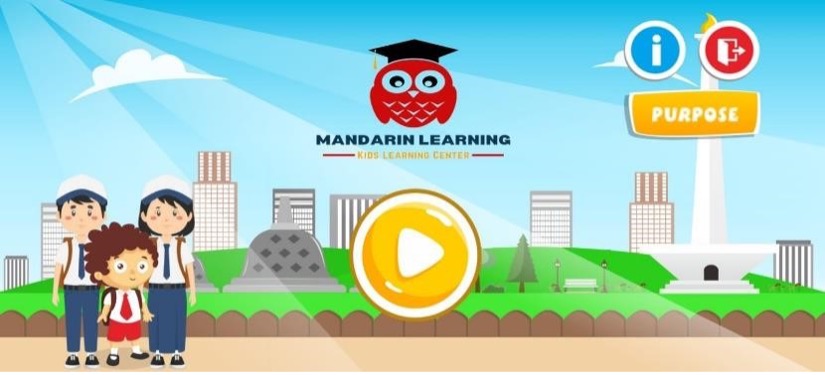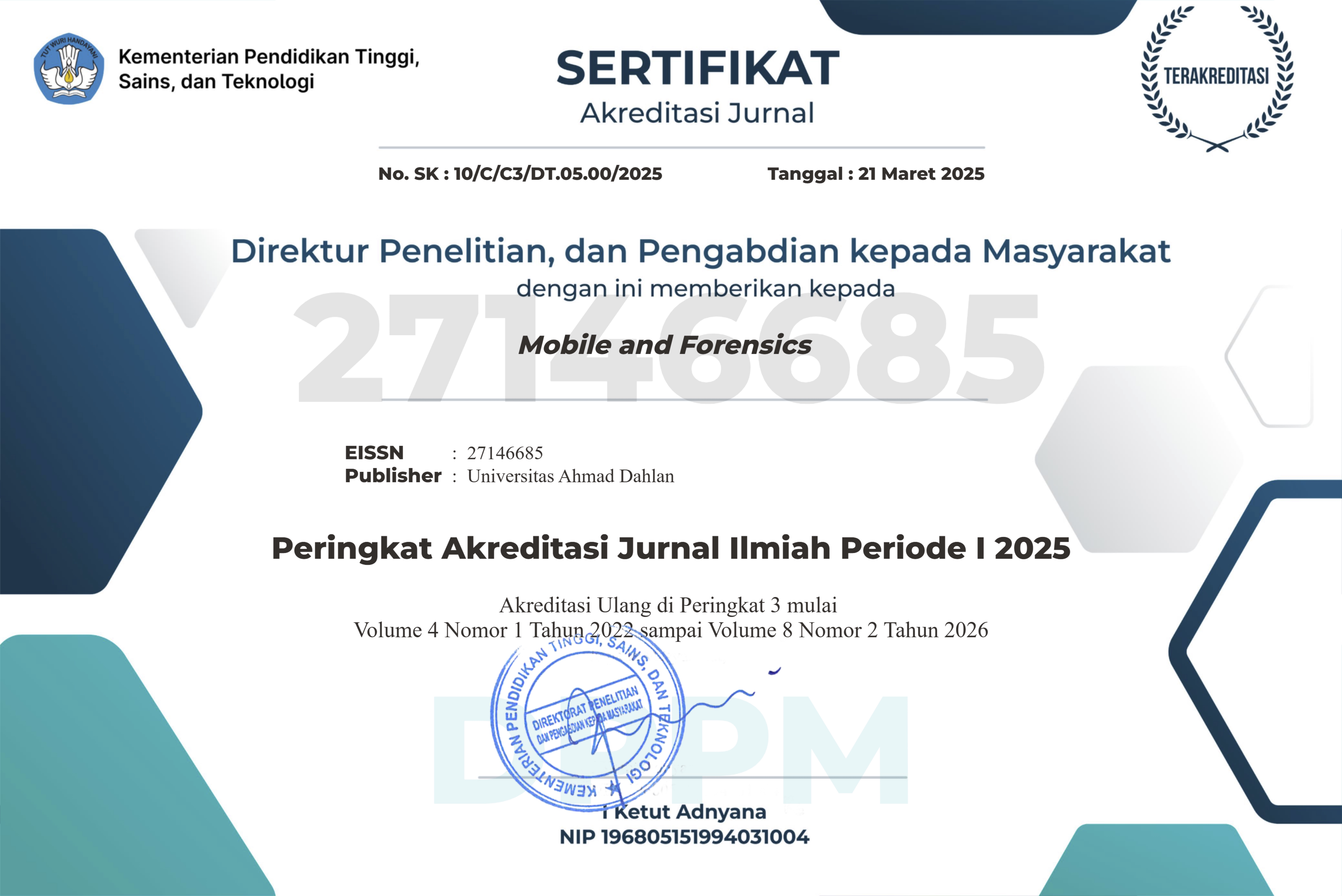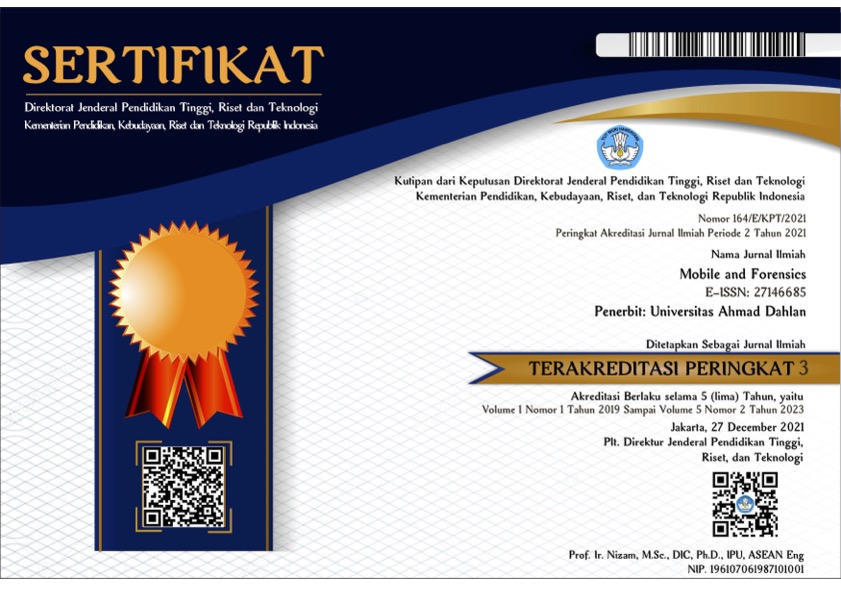Development of Mandarin Education Quiz Game Using Android-Based Multimedia Development Life Cycle
DOI:
https://doi.org/10.12928/mf.v5i2.7947Keywords:
Quiz, Mandarin, Unity, MDLC, EdugameAbstract
Mandarin is a language that is widely spoken and studied by people all over the world. Parents who start enrolling their children in Mandarin language courses from an early age with the hope that their children will become accustomed and proficient in using Mandarin. However, for elementary school children, the difficulty of constructing sentences in Mandarin is a major obstacle for children in the process of learning Mandarin. The purpose of this research is to create a unity-based mandarin quiz educational game application that is useful as an alternative media in the learning process to make it easier to learn. which is useful for a. Help make it easier for tutors in learning activities teaching by utilizing media technology in the form of Android-based educational games. Help students learn Chinese HSK material with a happy feeling and don't feel bored, because the content in the educational game "Mandarin Quiz" is displayed in an attractive way with audio, animation, and games on an Android smartphone. Helping children's enthusiasm for learning to know Mandarin.
System development for users will be developed using the Multimedia Development Life Cycle (MDLC) methodology. Each step or stage of this method is suitable for system development in multimedia applications and these stages can swap positions according to research needs. It is hoped that the results of testing and designing the Mandarin Quiz educational game application using Unity 2D can be further developed so that this application can help increase interest in learning.
The test results and feasibility of this educational game used the Usability Scale System (SUS) which consisted of 46 functions with 10 questions, the final test result was obtained with a score of 88, so that the mandarin quiz educational game was declared acceptable.
References
Kevin Fernaldy, 2021, Aplikasi Belajar Bahasa Mandarin Berbasis Android Jenjang SMK di SMK Harmoni Kota Batam", Universitas Putra Batam.
Hariguna & Wijiono, 2017, Dongeng Ayam dan Kelinci Bersaudara Berdasarkan AI 2D, Vol. 10 No.1, Universitas Amikom Purwokerto.
Mewengkan g, Alfrina Takaredase, Agustinus Kale'e, Putri Y, 2016, Pengembangan Media Pembelajaran Berbasis Multimedia Pada Mata Pelajaran IPS Kelas V Sekolah Dasar, Vol. 1 No. 2, Jurnal Pendidikan Dasar Nusantara.
Hamadi, M. R., Lumenta, A. S. & Putro, M. D., 2017. Rancang Bangun Aplikasi Game Edukasi Hafalan Doa Agama Islam. E-Jurnal Teknik Informatika Vol 12, No.1 (2017) ISSN: 2301-8364.
D Valasta, B Sugiarso, SDE Paturusi, 2019, Implementasi Multimedia Development Life Cycle pada Pengembangan Game Edukasi
Pengenalan Bahaya Sampah pada Anak, Vol. 5 No. 2, Jurnal Edukasi dan Penelitian Informatika,
Meilany Dewi, Anggy Trisnadoli, dan Ibnu Surya, 2022, Pengembangan Game 2D Pembelajaran Tentang Covid-19 Sebagai Media Pembelajaran Untuk Masyarakat Berbasis Android, Vol. 8, No. 2, jurnal Politeknik Caltex Riau,
Very Karnadi, 2020, Game Edukasi Pembelajaran Bahasa Mandarin Berbasis Android, Volume 3, Nomor 2, ejournal.ymbz.or.id,
Firman Nurefendi, 2019, Perancangan Game Edukasi “Petualangan Anak Sholeh” Menggunakan adobe Flash Berbasis Android, 145/TINF/2019, Universitas Ahmad Dahlan.
Aji ARdiansyah, 2019, Perancangan Game Edukasi Platform 2D, 018/TINF/2019, Univesitas Ahmad Dahlan.
Hendrizal. 2020, Perancangan Game Edkasi 2D, 011/TINF/2020, Univesitas Ahmad Dahlan.
Putra, W. S.,& Wahyudi. M. H, 2017. Aplikasi Game Edukasi " Cari Aku" Berbasis Android. J-TIIES , Vol. 1 No.1.

Downloads
Published
Issue
Section
License
Copyright (c) 2023 Muhammad Alfikri Maida Topani, Ahmad Azhari

This work is licensed under a Creative Commons Attribution-ShareAlike 4.0 International License.
Start from 2019 issues, authors who publish with JURNAL MOBILE AND FORENSICS agree to the following terms:
- Authors retain copyright and grant the journal right of first publication with the work simultaneously licensed under a Creative Commons Attribution License (CC BY-SA 4.0) that allows others to share the work with an acknowledgment of the work's authorship and initial publication in this journal.
- Authors are able to enter into separate, additional contractual arrangements for the non-exclusive distribution of the journal's published version of the work (e.g., post it to an institutional repository or publish it in a book), with an acknowledgment of its initial publication in this journal.
- Authors are permitted and encouraged to post their work online (e.g., in institutional repositories or on their website) prior to and during the submission process, as it can lead to productive exchanges, as well as earlier and greater citation of published work.

This work is licensed under a Creative Commons Attribution-ShareAlike 4.0 International License.












 Mobile and Forensics (MF)
Mobile and Forensics (MF)